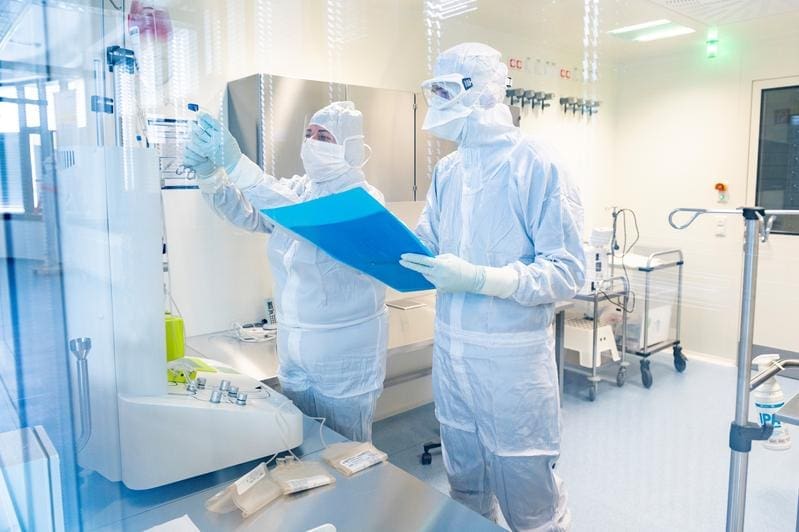W├╝rzburg University Hospital launches world’s first ROR1 CAR T-cell study in adrenal carcinoma
The University Hospital of W├╝rzburg (UKW) has reached a milestone in cancer research: as part of the clinical phase I study LION-1, the first patient was treated with ROR1-specific CAR-T cells, a new type of immune cell therapy against cancer cells that carry the ROR1 protein on their surface. The therapy, which is being used for the first time worldwide in a patient with adrenal carcinoma, aims to specifically identify and destroy tumor cells. Up to 46 patients are to be treated in the course of the trial in order to test the tolerability and initial signs of efficacy of the therapy.
The LION-1 trial is being conducted at the Clinical Trial Center of the National Center for Tumor Diseases (NCT) WERA, which is linked to the Early Clinical Trial Unit (ECTU) headed by Dr. Maria-Elisabeth Goebeler. Prof. Dr. Hermann Einsele, Director of the Medical Clinic II at the UKW and spokesperson for the NCT WERA, is the head of the study. “This is the world’s first CAR-T cell trial for this rare malignant degeneration of the adrenal gland,” emphasizes the treating endocrinologist Prof. Dr. Martin Fassnacht. The first patient, who had exhausted standard therapies, received autologous T cells that were equipped with a chimeric antigen receptor (CAR) at the Fraunhofer Institute for Cell Therapy and Immunology (IZI) in Leipzig. These ROR1 CAR T cells were infused back into the body to specifically attack cancer cells.
The study is investigating two groups of patients: one with blood cancers such as mantle cell lymphoma or chronic lymphocytic leukemia and one with solid tumors such as ovarian, breast or adrenocortical cancer. Up to 23 patients are planned for each group, with other locations besides W├╝rzburg being involved. “We want to know how the body tolerates the new treatment. What side effects can occur and what is the right dose? At the same time, we hope to see the first, albeit cautious, signs that the therapy is working,” explains Prof. Dr. Sophia Danhof, specialist in internal medicine and head of the treatment.

ROR1 is a promising target, as it is found on many tumor cells but rarely in healthy tissue, explains Prof. Michael Hudecek, sponsor representative of the study and head of the Department of Cellular Immunotherapy at the UKW. His team developed the ROR1-specific CAR-T cells. The therapy could represent a breakthrough, particularly for solid tumors that are difficult to treat with existing immunotherapies.
The CAR T cells are produced at the Fraunhofer IZI in Leipzig under strict pharmaceutical standards (GMP). After isolating and enriching the patient’s own T cells, the genetic information for the CAR receptor is integrated into the cell genome using virus-free sleeping-beauty transposon technology, the researchers explained. The cells are then multiplied, quality-tested and sent back to the UKW after approval. Production for the second patient has already been completed so that the next treatment can take place soon.
The LION-1 study marks a significant step forward in immunotherapy, the scientists emphasized. If the ROR1 CAR T cells prove to be safe and effective, they could offer new hope for patients with difficult-to-treat cancers, especially solid tumors.
The articles in the news section are produced by X-Press journalist office
Gender note. The personal designations used in this text always refer equally to female, male and diverse persons. Double/triple references and gendered designations are avoided in favor of better readability.




